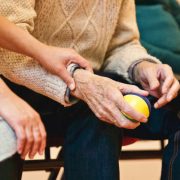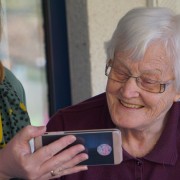Differences Between Assisted Living Facilities & Skilled Nurses Living
With so many residential types, fee structures, and potential benefits, finding the right place can quickly become a discouraging and confusing process. Sometimes the best way to understand one option is to compare it to another one. This article will seek to compare and contrast ALF (assisted living facilities) and SNL (skilled nurses living).
Differences Between Assisted Living Facilities & Skilled Nurses Living
Skilled Nurses Living |
Assisted Living Facilities |
| 1. Provides a safe environment for someone who has significant medical needs. | 1. Provides a safe environment for someone who needs only help with daily living activities. |
| 2. This is a medical living setting. | 2. This is a more residential setting. |
| 3. These facilities are required to have a registered nurse on site for at least 8 hours a day, 7 days a week. | 3. ALF have licensed practical nurses and/or registered nurses accessible and on-call, but they are not required by law to be on-site. |
| 4. Usually SNL is short term. | 4. ALF are more of a long-term plan for care. |
| 5. The goal is to provide more short term care in hopes of returning to more individualized living. | 5. The goal is to provide an individual with as much independence as he or she desires. |
| 6. Because skilled nursing exists to help individuals following a hospitalization or sudden decline in health. | 6. Residents of assisted living enjoy great freedom deciding how often and to what degree they need or want assistance. |
| 7. The cost is higher due to 24 hour care that is provided. | 7. Costs are less per month, however it is more of a long-term solution. |
| 8. SNL is likely to be covered by insurance. | 8. ALF is not likely to be covered by insurance, but can be covered by long-term care plans if an individual has one in their insurance plans. |
There are benefits and drawbacks to both options and the best fit will differ for each family. The most important thing to consider is what you or a loved one needs. Orchard at Athens is happy to help walk you through this process of decision making. If you need help deciding or would like more information, please contact us today.










